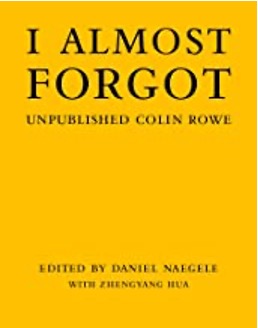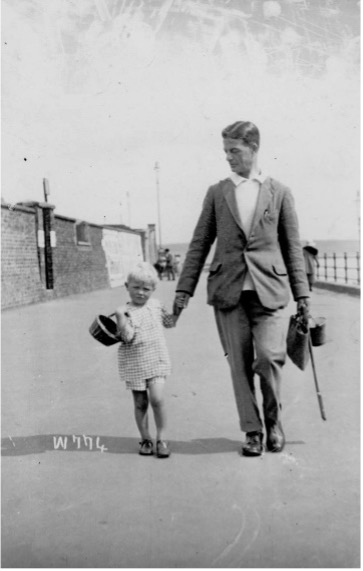AASL January Column
Column by Daniel Naegele
The Stuff Out of Which History Is Made
I Almost Forgot: Unpublished Colin Rowe

When he published his first books, Colin Rowe was already in his late fifties. The Mathematics of the Ideal Villa and Other Essays (1976) is a select, vulpine, wryly edited collection of nine essays written over a fifteen year period from 1946-1961. Collage City (1978) co-authored with Fred Koetter, is a theoretical prescription ostensibly directed at then-contemporary urban ills. Steeped in arcane knowledge and dialectical reasoning, and written in an erudite, ironic voice, it’s often considered Rowe’s magnum opus. Mathematics was what Rowe—at the time, a well-known personality, a revered professor, a historian of architectural theory, a champion of urban design—had been. By contrast, Collage City was what Rowe would become. This bringing together of past and present was a persistent motif with Rowe, one paralleled in both books whenever Neoclassical and Modern architecture confront one another. Both books are history, but they are theory as well. They give depth to an understanding of current conditions and refuse to see the contemporary as all there is. Rowe positions the twentieth century as part of a larger, on-going whole in which the past is part of the present. Through contrast, comparison, and dialectic reasoning, the ideas and realities of architecture are enriched. For the next twenty years, the two books together defined Colin Rowe.

Rowe continued to tell us about himself in the final years of his life in candid lectures, letters, postcards, and eulogies. Excursus on Contessa Priuli-Bon is his best memoir essay. Unpublished at the time of his death in late-1999, it tells of his life in London fifty years earlier, of his bad relationship with Rudolf Wittkower, and of his good relationship with the unknown art historian, Contessa Priuli-Bon. Excursus and twenty-two other writings can be found in I Almost Forgot: Unpublished Colin Rowe. An intimate autobiographical sketch, this book begins to answer the question, Who was Colin Rowe before Mathematics and Collage City?

 Study Architecture
Study Architecture  ProPEL
ProPEL 